Text


"She had been dreaming, she realized. Lady was with her, and they were running together, and … and … trying to remember was like trying to catch the rain with her fingers."
801 notes
·
View notes
Text
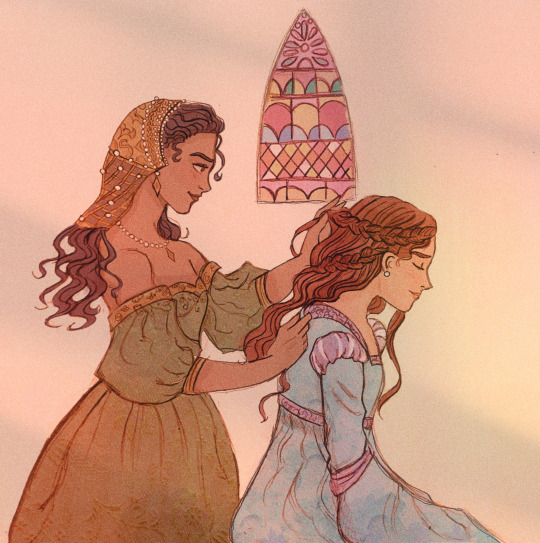
Back on tumblr again!! Here is Margaery doing Sansa's hair in a Southron style :'))
2K notes
·
View notes
Text

old gods most specialest princess ever
1K notes
·
View notes
Text

i want to fight for winterfell, lady sansa.
prints + merch
1K notes
·
View notes
Text
Stop correcting southerners . It’s very anti black . A Lot of AAVE or Ebonics come from the south . Respect it . There is no proper way to speak
648 notes
·
View notes
Text

The Targaryen Dragon Twins
Lady Baela the Brave and Lady Rhaena of Pentos
(Requested by Anonymous)
50 notes
·
View notes
Text
Sansa’s Autumn Hair
So I just had a random realization about Sansa today. I’ve always thought it was interesting how GRRM insisted on describing her hair as ‘auburn’ specifically, instead of a plain old ‘redhead.’ But I came across these two quotes recently:
“Her hair was a rich autumn auburn” (describing Sansa)
and
“I loved a maid as red as autumn, with sunset in her hair” (from the in-universe song ‘The Seasons of Love’)
and it hit me that Sansa’s hair is auburn, specifically, in order to emphasize the autumnal qualities of her looks. Instead of the raging-bonfire-implications of Ygritte’s ‘kissed-by-fire’ hair, Sansa’s hair gives us connotations of sunsets and trees in fall. In other words, Sansa is the ‘maid as red as autumn’ from the song.
And what season comes after autumn? Winter. Sansa’s looks are literally the embodiment of ‘Winter is Coming.’ So even though she doesn’t physically resemble a Stark, she does physically resemble their House words.
I don’t know, I thought that was pretty cool! Just felt like sharing with the class…
2K notes
·
View notes
Text
i think the reason why house of the dragon's treatment of alicent breaks my brain is because it's unironically written from the perspective of, like, a tyrion bro, but hidden under the cover of (targaryen) women's empowerment.
it's written from the position of not simply someone who identifies with tyrion as a nerdy misfit, but rather someone who would sympathize with tyrion more than sansa in their marriage to an absurd degree. someone who would valorize a grown man for resisting his attraction to a thirteen-year-old hostage and vilify said hostage for resisting or humiliating him during their wedding/marriage.
to them, a man being inconvenienced is worse than a woman (or girl) being abused. a wife resisting a husband's wishes is worse than the husband maritally raping her. a teenage girl with zero social capital surviving courtly intrigues is weak and annoying, but a girl burning all her problems away by dragon is badass. it's this exact brand of misogyny that is not only passively woven into hotd but also actively informs how the characters' actions are endorsed or condemned.
the most generous excuses are made for daemon and viserys because the show views them as victims of alicent's nefarious manipulations (because politicking is evil when a woman does it but clever and funny when a man does it). daemon realized it was wrong to groom rhaenyra as a teen... after bringing her to a brothel and molesting her there... so he's really a good guy. viserys chose to marry the 15-year-old over the 12-year-old so he's really not that bad. meanwhile alicent is the true misogynist for going along with her father's plan and getting married. it's like reading 2015 asoiaf reddit but in $10m-per-episode form
#the way hotd writers refuse to frame viserys and daemon as the abusers they are is so frustrating#alicent hightower#sansa stark#hotd#asoiaf
151 notes
·
View notes
Text
these are unformed thoughts but in the eyrie there's a lot of talk about letting ppl "fly" eg pushing them out the moon door. sansa climbs up to the eyrie and then climbs back down. catelyn and tyrion do the same. sansa also climbs down into the boat. jon ascends the wall and descends it. the first book begins with a man climbing a tree and then climbing back down. sansa is led onto the ramparts by joffrey. the wildlings go up the wall. characters are constantly seeking footholds and crevices for their fingers to clutch. heights and precariousness are an integral part of playing the game of thrones. there's more there but i'll just think on it for a bit
34 notes
·
View notes
Text
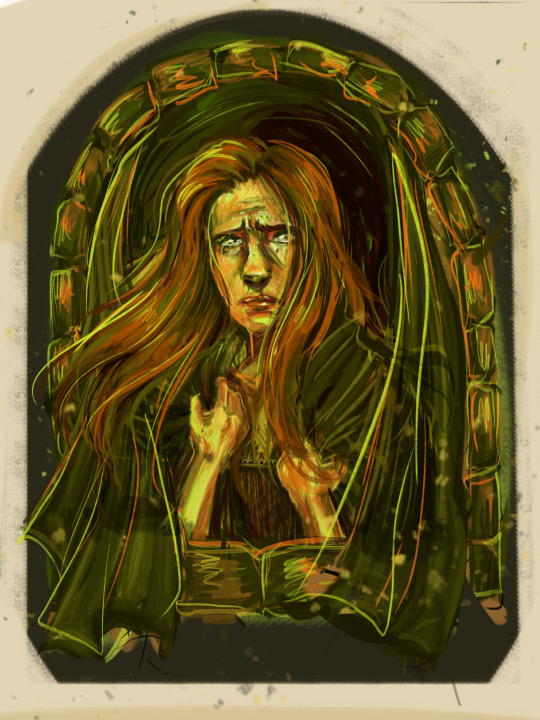

Princess in the tower 🐺
this was only meant to be a sketch of sansa idk what happened😭😭😭also my 5 millionth drawing of sansa at the blackwater and lyanna contrasted with her nieces. first time theyve crossed over tho
process below the cut ↓
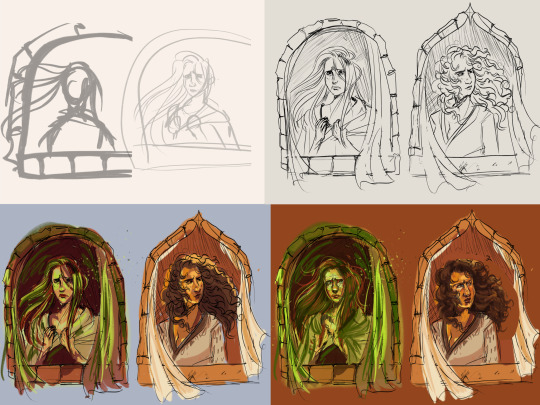
140 notes
·
View notes
Text

found this photo in drafts and ok i'm obsessed. sansa who's so into with songs and romantic narratives becoming so disillusioned with them bc of the reality of her life. and then the physical manifestation of that comes in the form of this half-rate soundcloud bard
13 notes
·
View notes
Text

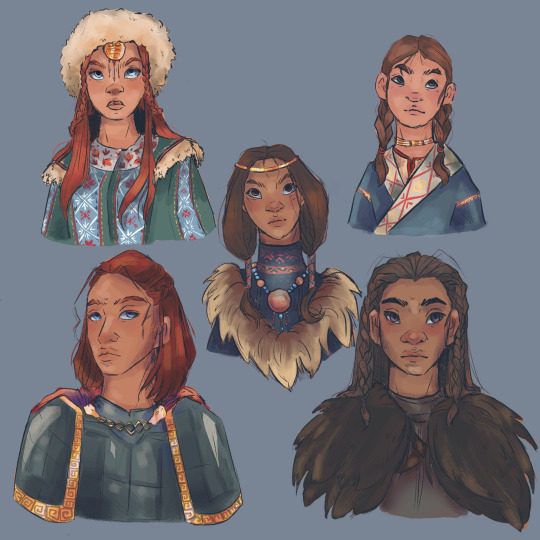


Sansa fanart collection
182 notes
·
View notes
Text
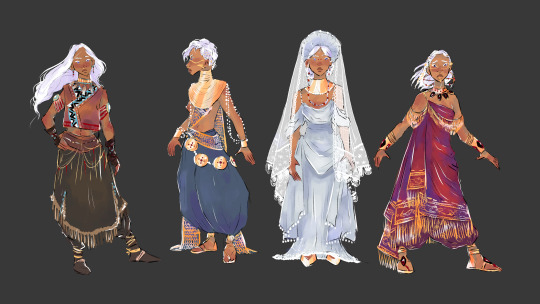
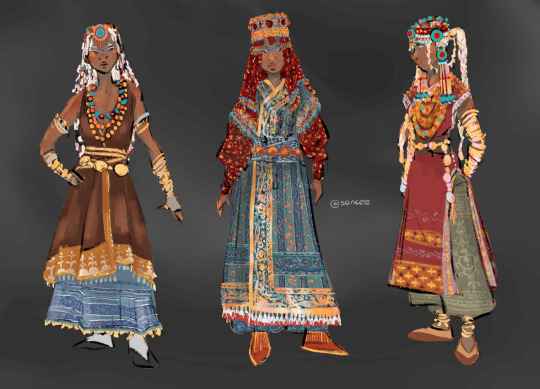

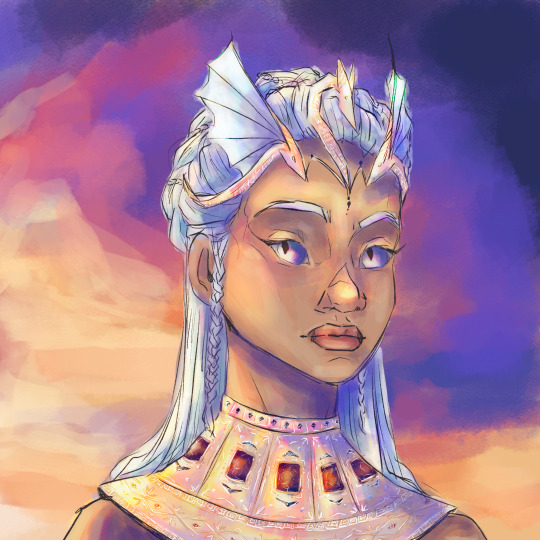
Daenerys fanarts
164 notes
·
View notes
Text

Dothraki Dany !!!
Here are some khaleesi fits. The wasted potential in the show is so depressing.
701 notes
·
View notes
Text
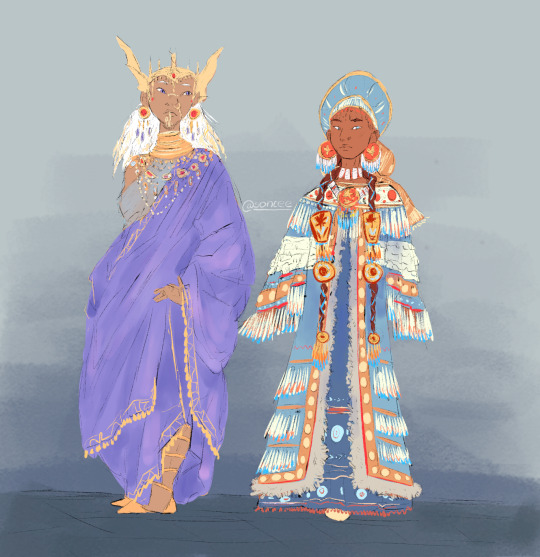
Besties
192 notes
·
View notes
Text
Nettles and Race.
George is great at both analysing and subverting genre tropes. We see this with his portrayal of the Targaryens as bad white blonde powerful elf like people. Or his understanding consistently in his works that beauty doesn't equal morality. This is surface level, and he does have his shortcomings (how he portrays the Dothraki in a lot of aspects, etc) but I find it really interesting the amount of tropes and conventions he addresses and subverts with Nettles specifically in such a short span of the book. George uses specific racial imagery with Nettles that we don't see often from him, in short. Here's a list:
Implementation and Subversion
1. The most unlikely is, the most unlikely:
Oftentimes, in fantasy stories, the least likely is a white disenfranchised person. The majority of the time, it's because they are poor or treated poorly. Nettles is a black girl who is poor, orphaned, and marked for thieving, and none of that hinders her own feat of claiming a dragon or the accepting initially that she does. She's unlikely, extremely unlikely, the most unlikely choice.
2. Black girls are allowed to feel:
Nettles cries and grieves. Of all the dragonseeds, she's the only one positioned to feel remorse and loss after the Battle of Driftmark. She is foul-mouthed (though not written into the narrative) and fearless. Often times their is a need for black women to be strong (not have access to their emotions) or angry (the only emotion they're allowed because they're "loud"). Nettles is crass and sensitive. She's multifaceted.
3. White people don't center black narratives:
Typically, black characters in fantasy are centred around white protagonists. Nettles distinctly isn't when you focus on her. This is different from being impacted. To be impacted means you're a part of the plot. To have someone be centred in your narrative would be for your existence in the narrative to entirely depend on your relationship with them. You don't exist outside of them. Nettles does. She has an entire life up until she claims Sheepstealer without any intervention from the Targs, and after she leaves the main narrative of Fire and Blood, she has a life. This is even in a Targaryen history book.
4. Black girls deserve to be protected and loved:
Nettles is protected by the men around her in the narrative. Oftentimes, this is something not afforded to black characters, far less for black women in fantasy narratives, but she is protected. Not just by Daemon, who is someone who has extreme emotional stakes with her but by the men of Maidenpool and Lord Corlys. All of whom are white in the books. Nettles is protected by men unquestioningly. They may decide how to do it or have a bigger motive, but protecting her is never a question.
5. Promiscuity questioned:
Nettles is never shown to be a promiscuous character through an unbiased lens. Every time a person brings up Nettles' sex, it's through the lens of necessity or heavily implied to be a dramatic assumption. The two biggest cases, "her raising her skirts for sheep" by Septon Eustace is counteracted by the fact that she's marked as a thief and claims a dragon called Sheepstealer who she's likened to in the narrative and by Rhaenyra who is disproven from her "she seduced the prince with spells" theory by both the men of Maidenpool who don't believe her and Daemon who let's Nettles go. Anytime her promiscuity is presented, it's immediately questioned by who we are told she is.
6. White women tears:
Historically and in fiction, the tears of a white woman are enough to derail any existence of a black character permanently or are at least meant to. Black people, fictional or real, are consistently tormented with the notion of white woman tears or emotional outbursts. Their actions cause a major consequence with white women. With Rhaenyra, this would be Nettle slowing her head for her suspicions. Nettles does not and gets away from. The narrative. This is unheard of. In fantasy doesn't occur because most times, the black woman would be punished, but in fandom, this idea is also reflected in the call for Nettles to be replaced.
7. Relationship with the lead man:
Daemon, for better or worse, is the lead man of the dance. Nettles finds herself attached to him in a relationship that seems, for lack of a better word loving. They seem comfortable, happy, and he's doting towards her. They spend all their time together, and it's paralleled with his other 'living' relationships as well. She's portrayed as his last great love and in the universe, the singers say as much. Issues aside, this is rare. (Martha Jones, I'm sorry I wasn't your writer)
8. Power and Worship:
Nettles is worshipped and seems to become a Goddess in her own right at the end of her narrative departure. Nettles is viewed as a deity because of the power she claimed by herself. Revolutionary. Also it isn't some blink and you can avoid it thing. It ties into the main story of Game of Thrones and her clan, the Burned men helping Tyrion Lannister.
9. Mammy, Sapphire Jezabel ext:
Mammy: Maternal black woman. Lives to serve white people and nothing else.
Sapphire: Rude, loud, stubborn, malicious, 'dumb' black women, nothing else.
Jezabel: raw, sexual, can barely restrain their sexuality and live to tempt (white) men. Nothing else.
Not once does Nettles tie into any of these tropes without it being questioned in the narrative or simply ignored in her story. So many representations of black women, especially in fantasy, fall into the first two or friend not lover trope, help mate trope, etc. anything that justifies their existence by tying them to white characters with no other outlook. Nettles subverts this.
10. Season of the Witch:
Black witches and their history save me. Black witches and their history save. This aligns itself with African spiritually and the otherness assigned to enslaved women who practised both 'witchcraft' and medicinal herbology for lack of a better word.
Witchcraft is also often tied to the imagery of the irresistible black woman as it's almost inhuman to be that attracted to black women when white women are available.
So when it's said that Nettles is a witch, imagery similar to the justifications of white women during slavery are being invoked but not followed through because no one believes her.
11. Disposable Black Love interest
This is also a big issue across genres with black chapters. It happens with Laena in the show as well. When the plot calls for it (or in a lot of cases fans) you dispose of the black love interest in place of a white one. Nettles removal from the narrative immediately calls for both Daemon's and Aemond's removal from the narrative. She isn't disposable. She's a linchpin. Also, Daemon does not go back to Rhaenyra after Nettles leaves. He just dies.
12. Nothing Special:
Magical black negros that helps the protagonist, welcome to your tape.
The magical black negros trope is this convention within fantasy where a black character will appear only to be an aid to a white character by their use of magic. They don't exist or have a life outside this purpose. Nettles could've fallen into this trap.
The idea that she isn't Valyrian could have easily been tied with the spells angle outside Rhaenyra’s bias. Instead of that, however, we get the idea that Nettles is just smart and interesting. She's allowed to be smart and interesting. The narrative defends her being smart and interesting.
She might not be Valyrian. She might not be a witch or seductress. She might be just a really clever girl who defies the odds and conventions.
Conclusion
I think Nettles was both an active effort on George's part to defy conventions and subevert stereotypes and tropes as well as a way to question his reader's bias. Nettles is often reduced to trivial, replaceable, and minor when she's not. You just have to want to pay attention to her.
14 notes
·
View notes

